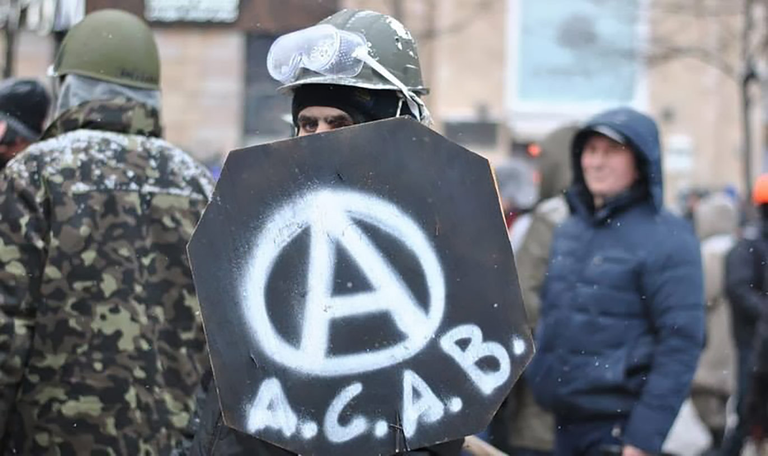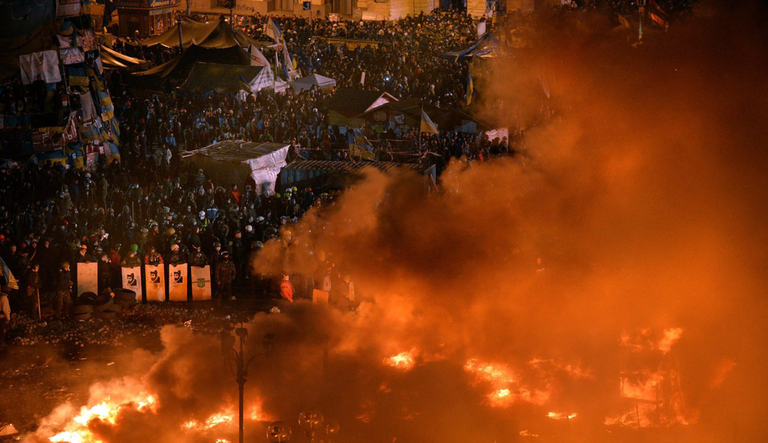The Ukraine has hosted all sorts of 'Murican gov't corruption and the election fraud perpetrated by them.
The united snakes have long interfered in the politics of other nations.
The c_a really didn't play many other games with their marbles, mostly regime change.
One day the moronic masses that have been mindlessly drinking the kool-aid as handed to them by 'trusted authority' will rise up, get their pitchforks and torches, and burn this fraud down.
Truth will make them free, but not before they get mad.

First Hypothesis:
The events in Ukraine must be understood as part of the same global trajectory of revolt as the Arab Spring, the plaza occupations in Spain, Occupy, and the Gezi uprising in Turkey.
This is not good news.
We have heard terrifying stories from the revolution in Ukraine: anarchists participating in anti-government street-fighting behind nationalist banners, anarchist slogans and historical figures appropriated by fascists, a dystopia in which familiar movements and strategies reappear with our enemies at the helm.
This text is a clumsy first attempt to identify the important questions for anarchists elsewhere around the world to discuss in the wake of the events in Ukraine.
We present it humbly, acknowledging that our information is limited, hoping that others will correct our errors and improve on our analysis.
It has been difficult to maintain contact with comrades in the thick of things; surely it is frustrating to be peppered with ill-informed questions amid the tragedies of civil war.
What is happening in Ukraine and Venezuela appears to be a reactionary counterattack within the space of social movements.
This may be a sign of worse things to come—we can imagine a future of rival fascisms, in which the possibility of a struggle for real liberation becomes completely invisible.
Here follow our hypotheses and an English-language reading list on for those who are still catching up.
In each of the previous examples, initial police repression caused a single-issue protest to metastasize into a generalized uprising, transforming a square in the heart of the capital into a fiercely defended urban autonomous zone.
This seemed to offer a new political model, in which people cohere around tactics rather than parties or ideologies.
(It is telling indeed that Occupy was named for a tactic rather than a goal.)
All these revolts could be broadly interpreted as reactions to the consequences of capitalism, though anti-austerity proved too narrow a frame: Turkey and Brazil saw protests over the effects of ascendant economies, not recessions.
In any case, the majority of the participants have not described these movements as anarchist or anti-capitalist, framing them simply as grievances with specific governments and economic policies.
When photos began to circulate of the protests in Kiev, it’s not surprising that many in the English-speaking world assumed approvingly that these were part of the same phenomenon.
Once again people were criticizing the government, occupying a central square, fighting the police.
The specific organizers and demands had always seemed incidental—whether it was ¡Democracia Real YA! or Adbusters, the departure of a dictator or canceling a fare increase, we assumed that the important thing was the antagonism these upheavals facilitated against state control.

The writing is on the wall, dear reader.